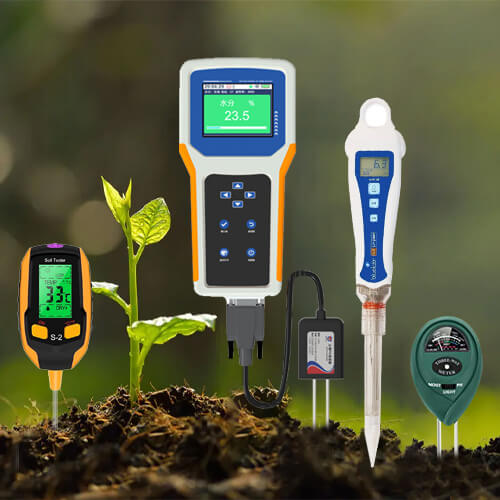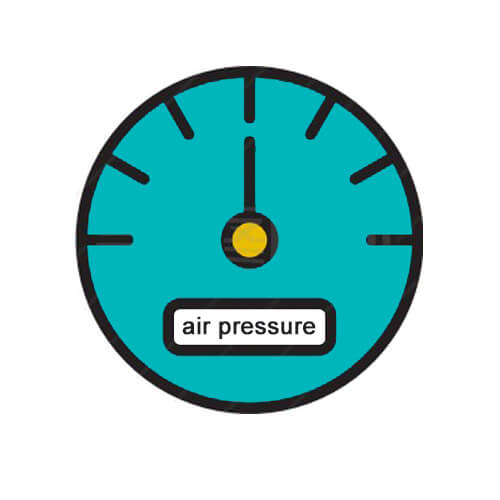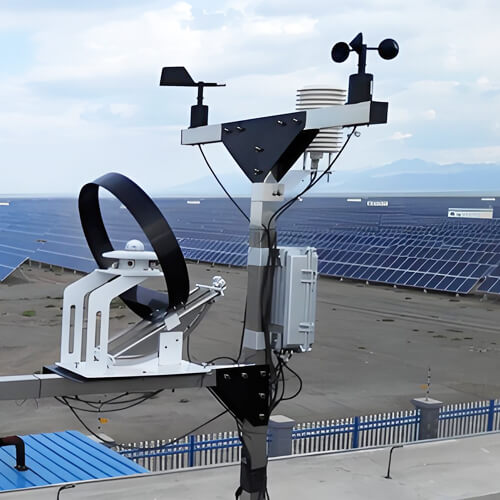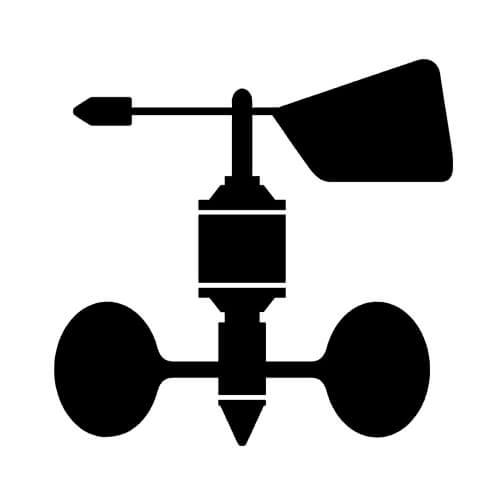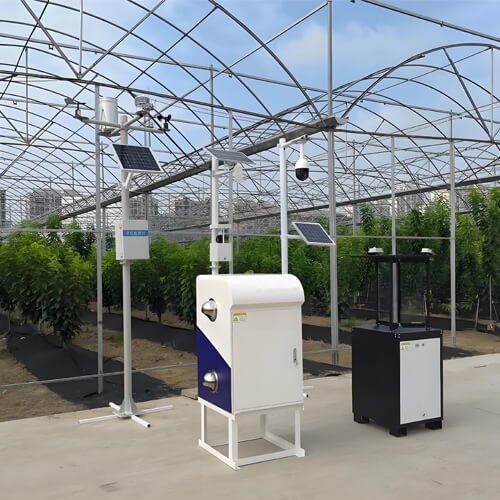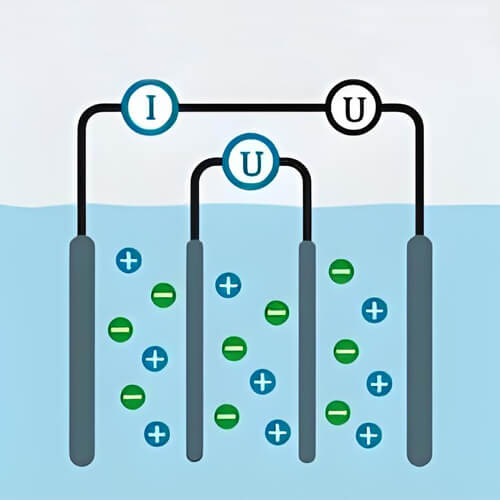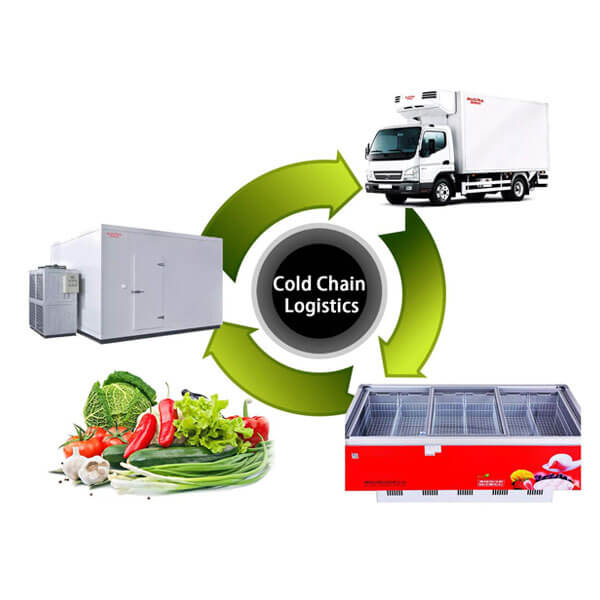A wise gardener knows how to grow up plants and flowers healthily in the garden. Because he will use tools to analyze and improve the soil to provide the best growing environment for flowers, vegetables, etc. For example: use a soil nutrient sensor to detect the content of nitrogen, phosphorus and potassium in the soil. Check the pH of the soil with a soil pH tester. Knowing the pH of your soil can give you exactly what you can and can’t grow in your yard.
Although some plants can grow normally across a wide pH range, each plant has its own optimal soil pH range. For example, the optimum pH for tomato growth is 6-7, for corn it is 6.6-7.2, and okra does well in soils with pH up to 7.5.
Why do you need a soil pH tester?
Insert the probe of the soil pH meter into the soil and it will directly tell you the current pH value of the soil. By measuring the value, you can consider what plants are best. Of course, if you want to grow your favorite flowers, you can create the most suitable soil environment by using fertilizers to improve the pH of the soil. Having a clear understanding of soil pH will ensure that plants thrive and produce better yields.
8 Best Soil pH Testers
In order to help every gardener have a top garden at home, we recommend the 8 best soil pH testers for you, introduce their characteristics and uses, and make it easy for you to choose the most suitable soil pH meter.
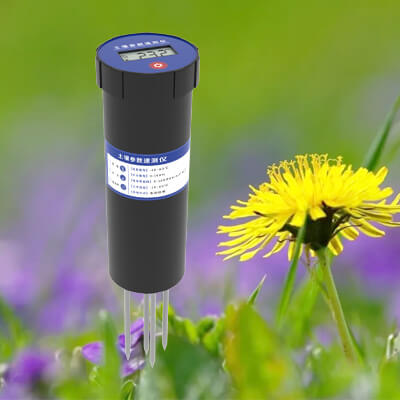
- Responsive
- Cheap price
- Range: 0-14
This soil ph tester uses replaceable batteries, so it can be reused for a long life as long as the probe and housing are not severely damaged. Just click the on button and insert the stainless steel probe into the soil to get the pH value instantly. It measures range from 0 to 14, which means it can detect strongly acidic and alkaline soils. When working, the screen automatically lights up, which is convenient for users to obtain the value clearly.
The biggest advantage of this soil ph meter is its portability and high sensitivity. The size is 19.5×4.6cm, which is the same size as the palm of the hand, very small. You can carry it around in your toolbox to measure soil pH in different locations. It is powered by a battery, so the sensitivity is high, the measurement process does not need to wait, and there is no requirement for soil quality, which is very convenient. The price of this ph tester is very cheap, it is the best choice for managing garden soil at home, and it saves your budget greatly.
- Very good value for money
- The best choice for home garden
- High sensitivity and accurate measurement
- Small size, easy to carry
- Cannot be used in water
- Can only measure PH
- The battery needs to be replaced manually
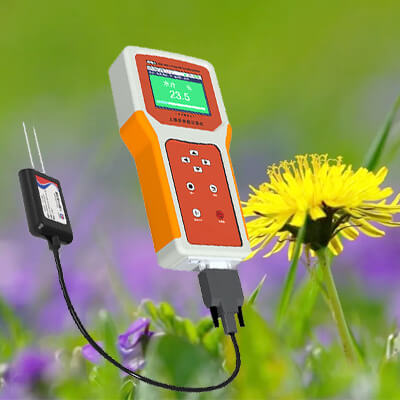
- Multifunction
- High precision
- Wide range
This soil pH meter consists of a soil pH sensor and a handheld analyzer. The value measured by the soil pH sensor can be displayed directly by the analyzer. The handheld analyzer has a storage function, which can store measurement data at different locations and at different times. The historical data is exported to the computer through the data line, which is helpful for data analysis and comparison. It can store 1 million pieces of data at one time, and can be reused after clearing.
The soil pH sensor as a measuring unit has high precision and sensitive response. Good waterproof, IP68 protection level. The recorder is powered by a rechargeable battery, which can work continuously for 8 hours when fully charged. This multi-channel recording ceremony can also be connected to a soil temperature and humidity sensor, soil EC sensor and soil NPK sensor, which can measure soil temperature, humidity, EC, nitrogen, phosphorus, potassium and ph values. Very powerful and a must-have tool for professional gardeners.
- Multi-parameter measurement
- High precision and responsiveness
- Large screen display, clear values
- Set data analysis, storage and upload in one
- Configurable time and alarm
- need to be charged
- more expensive
3.Atree soil pH meter
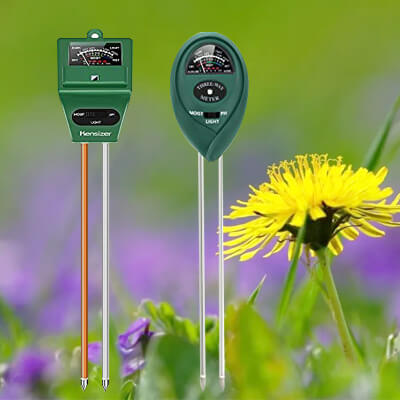
- Multifunction
- High precision
- Wide range
If you are more concerned about the cost of the ph meter, then we recommend this ph meter for you. It will be a very simple and practical tool for you to use. First, you switch the switch to what you want to measure, then insert the probe 6 inches into the soil and wait patiently for about 10 minutes. After the pointer stops moving, you can view the measurement.
This ph meter does not require battery power, avoiding the trouble of power supply. It can measure humidity, ph or light. It can help you effectively improve the garden planting environment. Use this little device in a pot or in the garden to ensure your flowers grow better. The overall compact design greatly reduces the space occupation and is convenient for users to carry around. In addition, the manufacturer offers a variety of housing colors for you to choose from. This soil pH tester is currently the most popular soil acidity and alkalinity testing equipment.
- 3-in-1 measurement
- Small size, light weight
- Cheap price
- No battery required
- The display is too small for easy reading
- The value is displayed for a long time
4. Bluelab soil ph pen
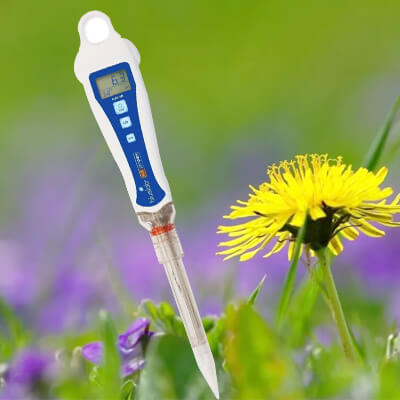
- Calibratable
- Temperature compensation
- Soil and liquid all ok
This soil pH test pen uses laboratory-quality glass probes that measure pH in multiple locations. All you need to do is insert the probe into the test soil and make sure the soil is soft and free of obstructions. It measures pH at temperatures between 32 and 122F with a measurement range of 0-14. It can measure both the pH value in the soil and the pH value of the hydroponic solution.
Soil pH test pens require their own calibration and are fully temperature compensated so you get accurate readings every time. The backlit LCD display is easy to read and alerts you when the calibration time is correct. But the drift is very fast and requires cleaning and recalibration after every use to keep the specs accurate.
- Precise measurement
- 0-14 wide range measurement
- Can measure soil and solution pH
- Clear screen for easy reading
- Need to self-calibrate
- Maintenance is more troublesome
5. Kelway 2 in 1 soil tester
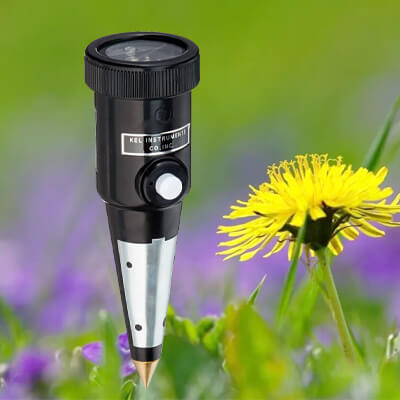
- Durable
- High precision
- Portable
If you are serious about moisture and ph measurements in your garden soil, then I recommend the Kelway 2 in 1 soil meter. This is great for walking around the yard and fine-tuning the pH of your yard. It’s a solid tool, it needs more testing, but it’s accurate. For the same measurement object, no matter how many times you test, the value is the same. The display is designed at the top, allowing you to easily see the value from any angle.
This soil meter can measure ph and moisture, and it’s easy to do with just a toggle button. Its sensitive electrodes measure pH from 3.5 to 8 and soil moisture from 0 to 100%. No chemicals, water or external power are required. The overall length is only 6.6 feet, and it comes with a portable carrying case with a belt loop, which can be carried with you to check the soil condition in various places at any time. When plugged into moist soil, accurate measurements are obtained in just 3 minutes.
- High accuracy
- No power and chemical reagents required
- It is durable
- Expensive
- Highly alkaline soils are prone to false readings
6. Hanna soil ph meter
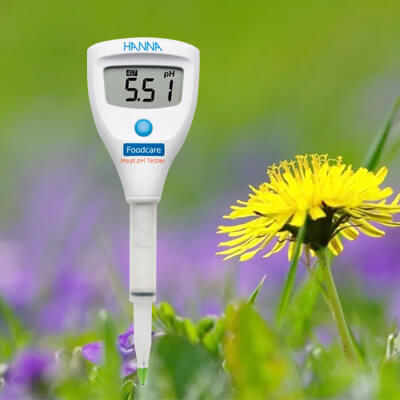
- Electrodes can be replaced
- Self-calibration
The Hanna soil ph meter is a compact tester with an easy-to-read LCD display and simple two-point calibration. Regular recalibration ensures the accuracy of the detector, especially if you are measuring extreme pH levels. If you are doing precise work, daily calibration is recommended. It can check pH in soil and liquids with a measurement range of 0-14. As with any pH measurement, you must wait a few seconds for a stable reading. Its electrodes can be replaced by themselves, you just need to unscrew the electrode and then screw in the new one, the process is very simple.
The “long neck” design of this soil ph tester is very popular with customers. The device is powered by batteries, and the internal battery can be used for 3000 hours, avoiding the problem of frequent battery replacement. You can replace the electrode to extend the life of the meter and ensure the validity of the measurement.
- Clear screen
- Can measure soil and solution pH
- Electrodes can be replaced
- Requires frequent calibration
- More expensive
7. Justmetr soil meter
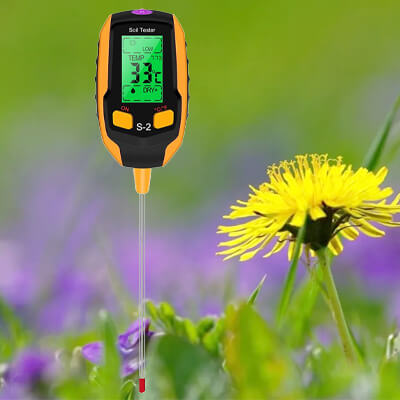
- Simple to use
- Cheap price
The Justmetr soil meter measures light, soil temperature, moisture and ph levels to help you understand what conditions your plants ultimately need to thrive. When in use, insert the probe 3-5 inches into the soil and adjust the position of the probe until the tester is seated in the measuring soil. Adjust the switch to the pH position as needed, and observe the value on the dial after 10s. If the soil you measure is too dry, you can pour some water in a moderate amount.
With only one probe, this soil ph tester is lightweight and highly portable. Inexpensive and can be used indoors or outdoors.
- Cheap price
- Temperature, humidity, light, ph 4 in 1
- Easy to carry
- Low sensitivity
8. Luster Leaf soil ph tester
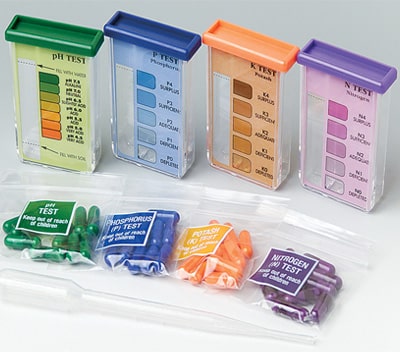
- Chemical reagent
- Detailed description
- Educational
The Luster Leaf 1601 rapidest soil ph tester is a chemical measurement method. A sample of the soil for measurement is mixed with water, then reagents are added and compared with a color comparator to determine the nitrogen, phosphorus, potassium and pH content of the soil. You can get a complete picture of the nutrients and pH in the soil, and the measurement results are not very different from the laboratory results. So the accuracy can be trusted.
For novice gardeners, I recommend this Reagent Soil Tester because you can get hands-on involvement in the entire measurement process, which is more rewarding. If you want to educate your kids about gardening, a complete and inexpensive soil kit with easy instructions and recommendations for over 400 plants is your best choice.
- Accurate measurement results
- Easy to understand
- Detailed instructions and strong operability
- Multiple measurements are required
- The process is more complicated.
How to Pick the Best Soil pH Tester?
Which soil pH tester to choose depends on your needs. For example, if you just want to know the pH of the soil quickly, then an electronic device is the perfect choice. If you’re wondering about other nutrients in your soil, then chemical testing has you covered. In addition to this, you need to consider the following:
Portable
For professional gardeners, there is a wide range of measuring points. It is often necessary to carry the tester to different locations for measurement, so a small and compact soil tester is particularly important. It is not only convenient to move, but also to ensure the accuracy of measurement.
Precision
In general, the accuracy of the detector is proportional to the price. If you need to measure the soil pH value strictly and accurately, it is recommended that you choose a meter with a relatively high price. Because such equipment is generally not affected by environmental and other soil factors. The measurement data is relatively reliable.
Using life
The service life of a soil pH meter is usually related to the waterproofness of the housing and the material of the probe. The probe is frequently inserted into the soil to work, and it will be worn and corroded. After the measurement, the stains on the surface must be cleaned in time. In addition, the water resistance of the device casing is also important. Good waterproof treatment ensures the normal operation of the internal sensor, which greatly improves the service life.
Display
There are two common displays for soil pH testers: digital displays and dials. The digital display is more convenient than dial reading because it can directly display the determined number. Values can be seen clearly even in dark environments. When buying a pH tester, it’s easier to get accurate measurements with a clear display.
Multifunction
In order to have a beautiful garden, gardeners often need to measure a variety of environmental factors, such as: soil moisture, soil nutrients, soil pH, light, etc. Having a soil pH tester that measures soil moisture and sunlight is a great thing. It is more convenient to choose a three-in-one tester to measure. Choose according to your needs.
It is important to know the moisture and nutrients of the soil, their content determines the healthy growth of plants. Lack of water can cause plants to wilt or even die, and too much water is not good for plant growth. According to the measured soil nutrient data, gardeners make reasonable fertilization to ensure that the plants grow in the best environment.
How to Raise and Lower Soil pH?
Soil pH indicates how acidic and alkaline the soil is. The pH range is 0-14, with a median of 7, so a pH of 7 is considered neutral. If the pH is less than 7, it means that the acidity is getting stronger and stronger. The pH value is greater than 7, which means that the alkalinity is getting stronger and stronger. Most plants prefer a pH between 6 and 7.5 (slightly acidic or slightly alkaline).
Do you have such questions? The best growth environment for the plants you want to grow is weakly acidic, but the garden soil you measure is alkaline, what should you do? In fact, the acidity and alkalinity of the soil can be fine-tuned manually. We can adjust the soil to the acidity and alkalinity suitable for the growth of target plants through scientific methods.
For acid soil adjustment, a certain amount of slaked lime can be added. The main component of slaked lime is calcium hydroxide, which is an alkaline substance. It is made by digesting quicklime with water, drying, sieving, and air-selecting. It can be used to neutralize acidic soil and improve soil structure. In addition, soil pH can also be adjusted by applying plant ash. The residue left after the burning of plants is grass ash, which can improve soil pH and increase soil nutrients.
For the adjustment of alkaline soil, acid fertilizers such as ammonium sulfate, ammonium nitrate, and ammonium chloride can be added to improve the affinity of the soil. Reasonable selection of fertilization, rational use of acidic fertilizers. In addition, agricultural machinery can be used to break the straw and evenly bury it in the ground. Deep plowing of soil can improve the permeability of the soil, and the straw can rot slowly after being buried in the soil, which can increase the content of soil organic matter, and then change the soil structure.
No matter which method is used to improve the acidity and alkalinity of the soil, it must be carried out in accordance with scientific and reasonable methods. Otherwise, it will not only fail to improve the soil structure, but may also damage the soil and affect plant growth.
FAQ
Of course, the values measured by different soil ph testers may be different, but they can reflect the acid and alkali conditions of the soil and provide data support for you to improve the soil structure.
Most ph meters are accurate around 0.1ph. Values are accurate if properly calibrated and operating without errors.
Both are accurate measurements of soil pH if your operating standards are correct.
Strictly speaking, water cannot be added to the soil, as adding water may result in inaccurate pH measurements. However, for some soil pH meters with lower sensitivity, the pH value must be measured by adding water. Whether or not to add water depends on the ph meter you purchased.
Different ph meters have different calibration methods, please be sure to read the manual and calibrate correctly.
When you want to use a pH meter to measure soil, please calibrate it first to ensure the accuracy of the measurement results.
The loss of the ph meter mainly comes from the corrosion of the steel needle and the aging of the sensor. It can be used for one year without use in harsh environments and with normal maintenance.

